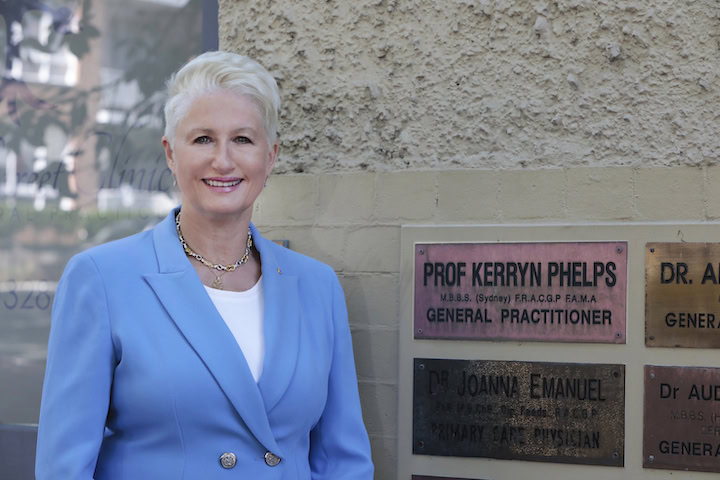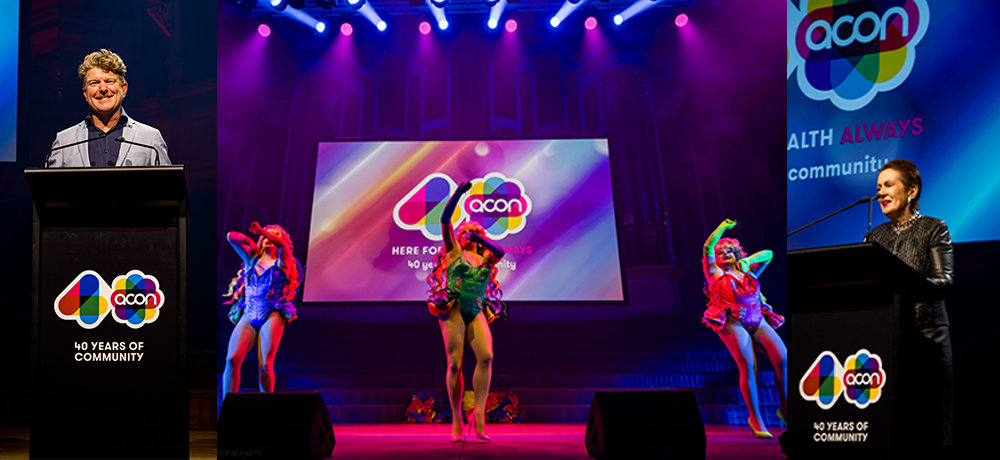
Getting The Message Right

Dr. Kerryn Phelps is a preeminent figure in Australian medicine. She was the first woman to be elected president of the Australian Medical Association (AMA) and has been recognised with many prestigious awards and honours, including an Order of Australia.
She has used her high profile to advocate for equality and public education around health issues. In recent years, she extended her purview to politics, succeeding Malcolm Turnbull as the Member for Wentworth and becoming the first openly gay woman elected to Federal Parliament. She is currently a City of Sydney councillor.
Dr. Phelps spoke to Star Observer about her role in the community response to the COVID-19 crisis.
“One of the reasons that I stepped into this at the beginning is because I thought the messaging was very confused,” says Dr. Phelps regarding initial and ongoing advice around the COVID-19 outbreak. She is acutely aware of how challenging yet vital it is to deliver user-friendly information to the public, having been involved in health promotion and health communication since the 1980s.
“The problem is, if a message doesn’t make sense, people don’t pay attention to it, or they treat it with derision,” Dr. Phelps says.
She refers to some of the early restrictions on crowds introduced by the Federal Government.
“We were told they were going to ban mass gatherings of over 500 people but not until after the weekend. So, if it was so important to ban mass gatherings why wasn’t it happening right now? That didn’t make sense.”
Even reducing gatherings down to 100 people defied logic. One infectious person among them would still cause a cluster of outbreaks.
Another contentious issue is the efficacy of wearing masks. Dr. Phelps says the debate could quickly be resolved if authorities would just be honest and transparent.
Masks are not foolproof but they do provide some degree of protection. People have been discouraged from buying high grade, single-use surgical masks to preserve them for health practitioners and front-line workers.
Home-made, reusable masks can help reduce the risk of expelling or inhaling droplets and will discourage people from touching their face. They should be used in conjunction with other guidelines such as physical distancing and repeatedly washing hands.
“It comes down to using your common sense,” says Dr. Phelps.
This is especially true with regard to conflicting messages around sex.
“If you have two partners who are monogamous and living in the same place and both socially isolated, your risk is absolutely minimal. If you have one person who is physically distancing, staying at home, socially isolating, only going out under certain circumstances, and you’ve got somebody else who is not taking any precautions at all, then there is much more risk of the person who is taking all the precautions getting the infection from the person who’s not,” explains Dr. Phelps.
That COVID-19 is not technically regarded as a sexually transmitted disease is irrelevant – it can be transmitted via intimacy, proximity.
“It’s not a time for seeing what you can get away with because you can’t negotiate with a virus,” warns Dr. Phelps.
As a medical professional, Dr. Phelps recognised the threat of COVID-19 very early on and immediately started implementing an action plan. She has spoken to as many decision-makers and experts as possible and ensured her colleagues and staff had all the information and equipment they required to be safe.
Her practice quickly set up tele-health protocols so that they could continue to provide care for people remotely. Her reception staff were extensively trained to give triage service over the phone.
“It’s been a really fast-moving, fast-evolving situation which we’ve had to stay on top of, literally, day to day,” says Dr. Phelps.
“In fact, we set up a drive-by testing facility for patients before the St Vincents one was set up…We set that up so we could make sure patients could safely get tested without having to leave their car.”
Patients need to call first and make an appointment, then meet a doctor in a side street where a sample is taken. All the necessary safety equipment is worn and protocols are observed.
As a member of the LGBTQI community, Dr. Phelps understands the particular impacts this pandemic is having within this group. Many LGBTQI people are estranged from their families, have low income, suffer mental health issues, are alone and vulnerable, and homeless.
“The thing is that we’re a community, and what community implies is shared spaces and shared events and group activities, and that’s been probably one of the hardest things for a lot of people,” says Dr. Phelps.
“The LGBTQI community is resilient, but not every individual in the community is resilient and so we need to look out for each other and reach out to each other.”
She advises people to stay informed, stay connected, get out and exercise, eat well, and refrain from using alcohol or drugs for comfort.
As a City of Sydney councillor, Dr. Phelps sees the economic impact of the pandemic at a local level. Much of the city’s commercial sector is made up of small businesses and they have suffered substantially.
City of Sydney has announced significant packages to help small business owners and sole traders and Dr Phelps strongly encourages the community to apply for the range of grants.
Creative practitioners – of which there are many in the LGBTQI community – have been specifically catered to among the grants. A number of businesses have managed to improvise, and may survive with a little help from their local friends.
“I’m also seeing around Sydney […] that there is support for local businesses who are trying to adapt to the circumstances – like bars that are providing takeaway alcohol, or restaurants that have shifted to take-away food […] Some people are treating themselves to a take-away meal from their favourite restaurant a couple of times a week.”
While council is starting to think about strategies to help the city recover once the pandemic threat has passed, it is still much too early to talk about any lifting of restrictions yet.
“We’ll have to, at all levels of government, take the brakes off slowly and carefully,” says Dr Phelps. It will require a lot of adjustment and a new idea of normal.
“I don’t think we’re going to come out the other side exactly as we went in.”










Hey Alex, Kerryn is fully entitled to run her own business.
Does Dr Phelps bulk-bill ? If not, why not?
Do the other GPs at her practice bulk-Bill? If not, why not?